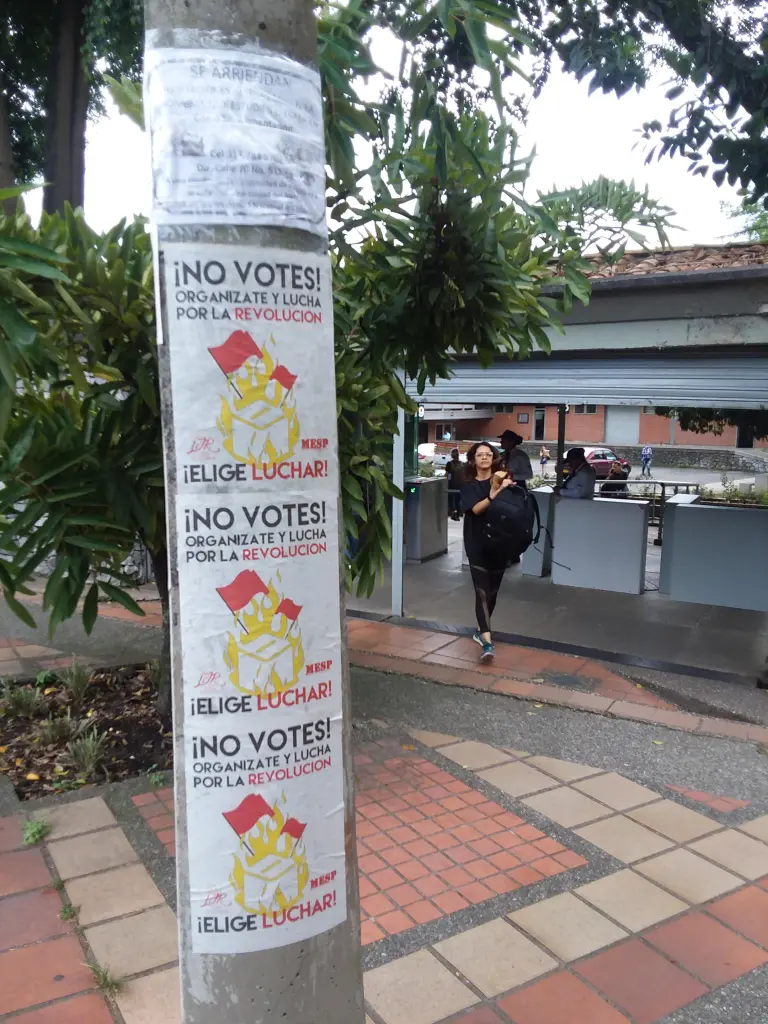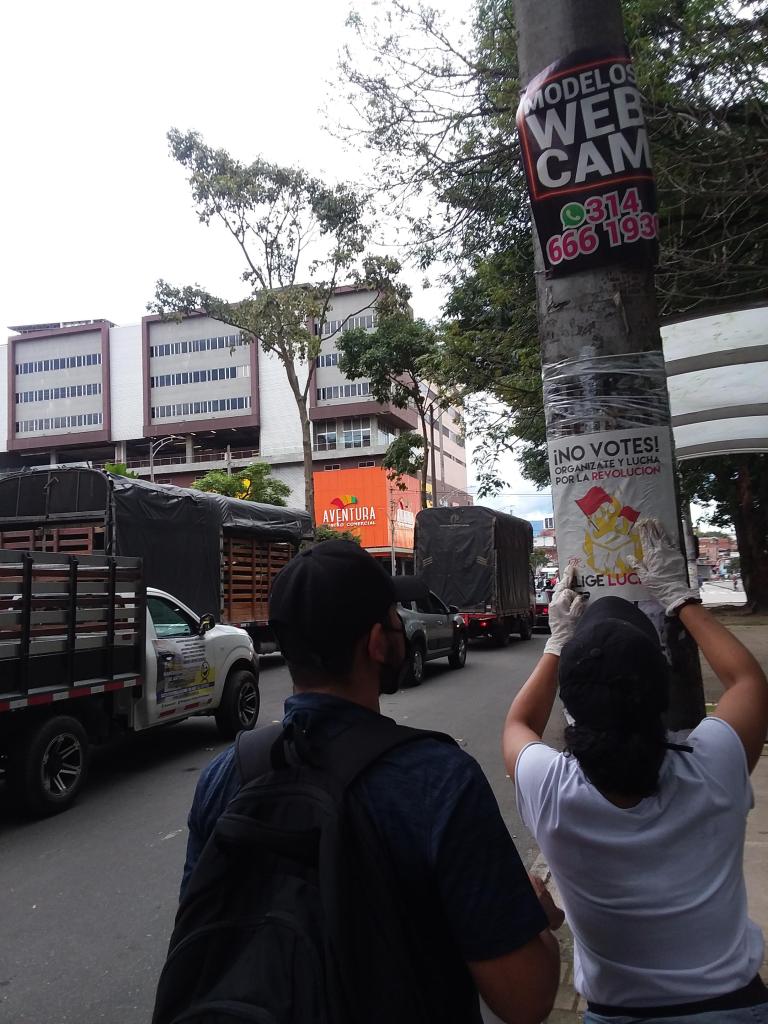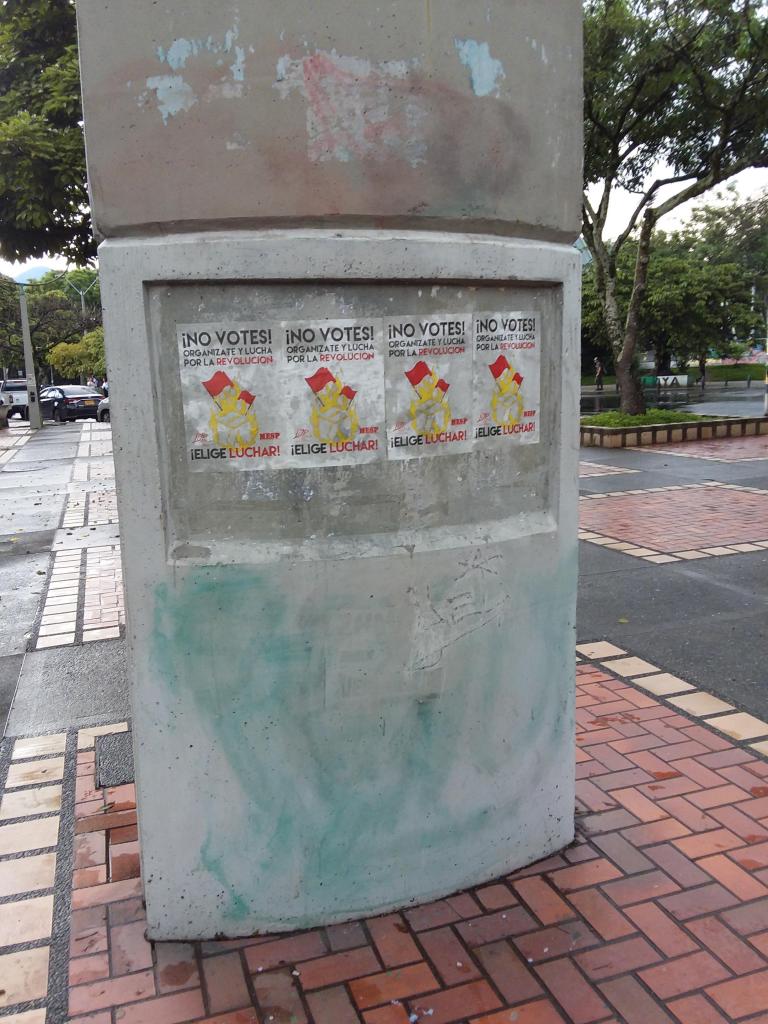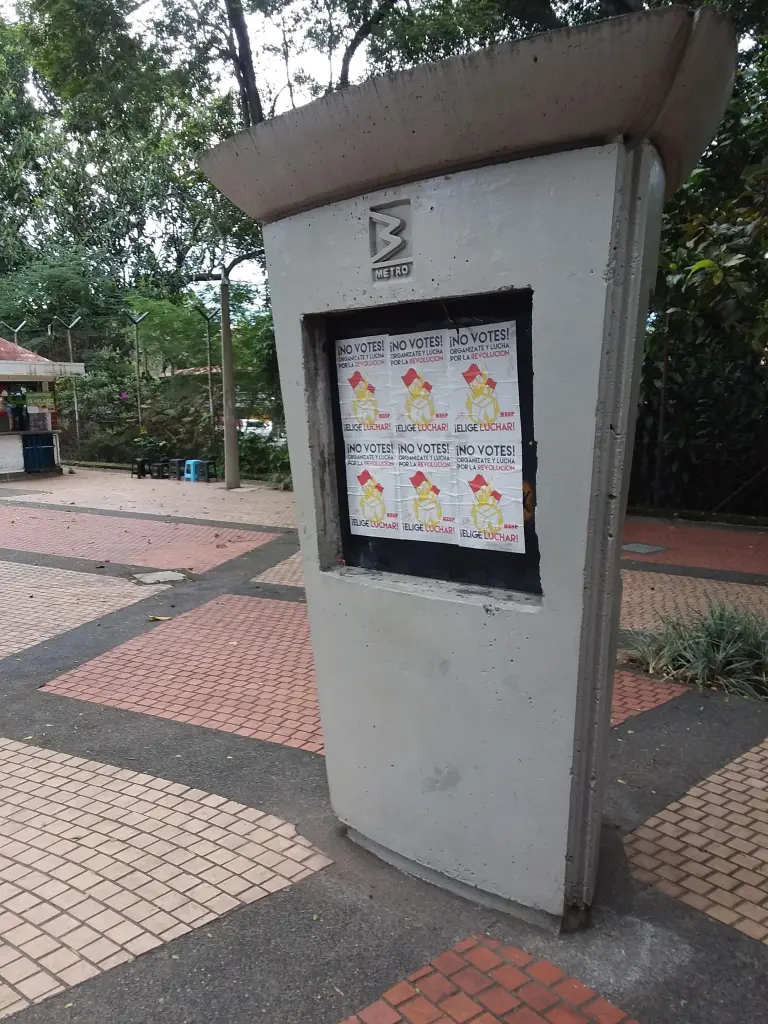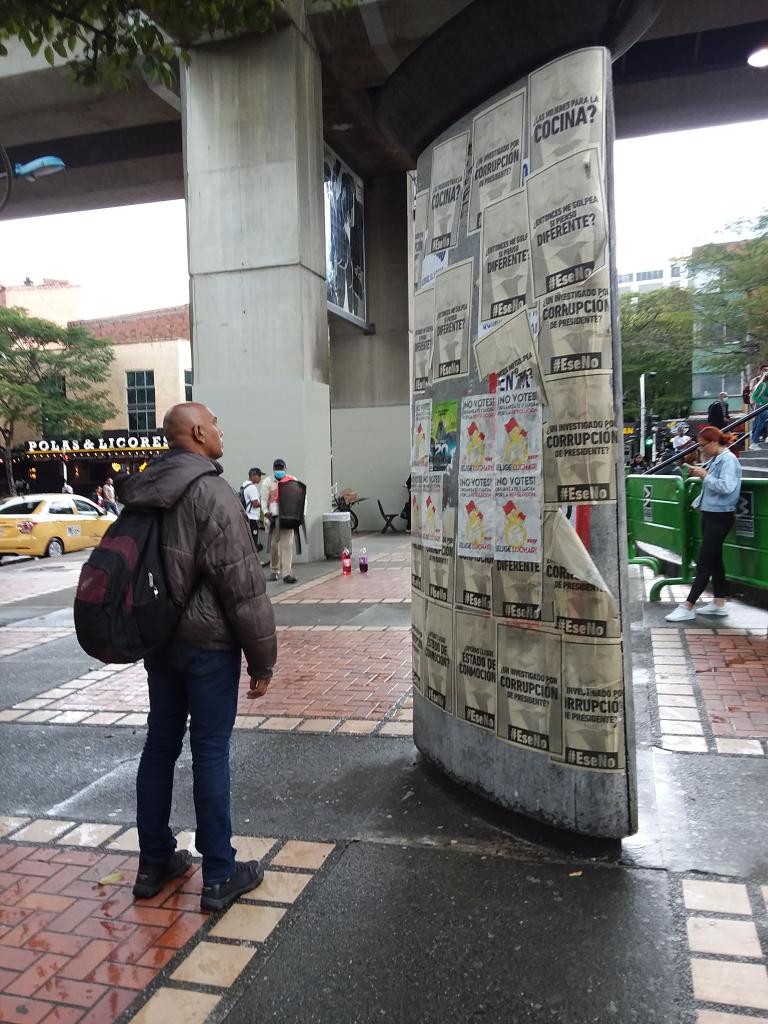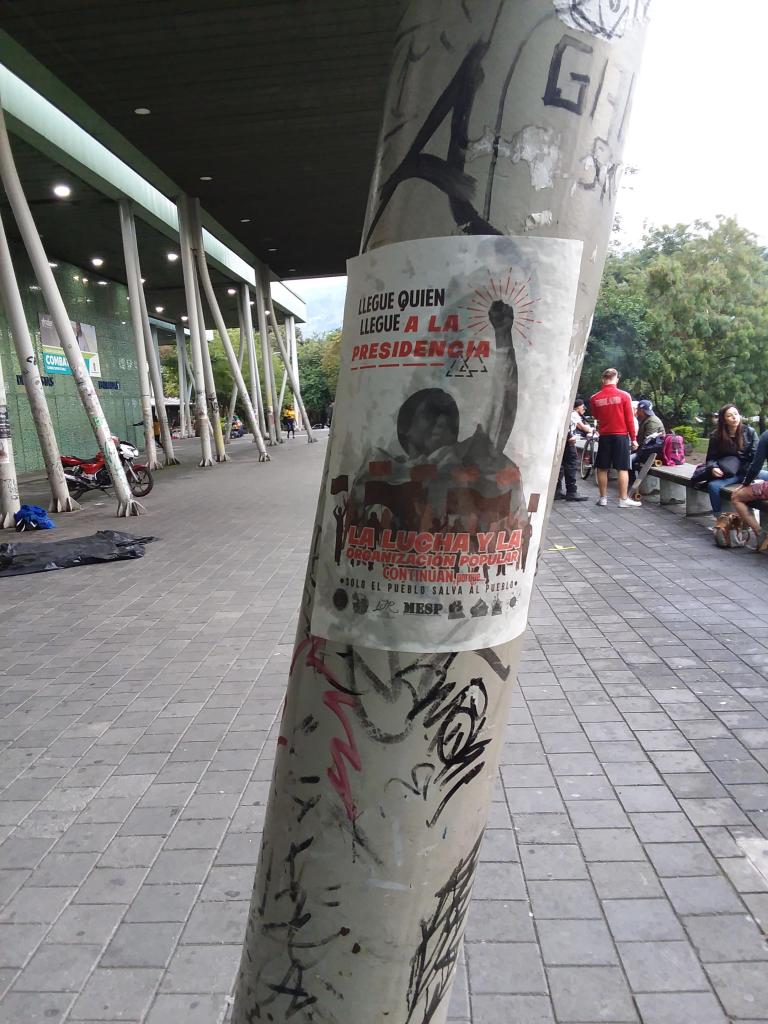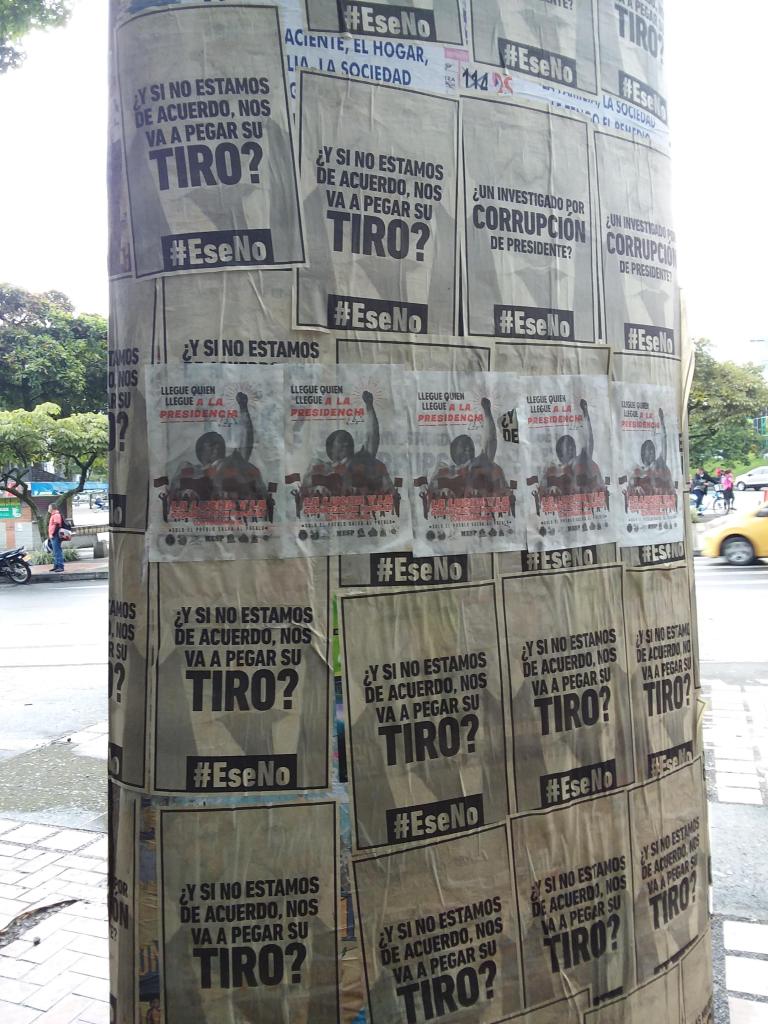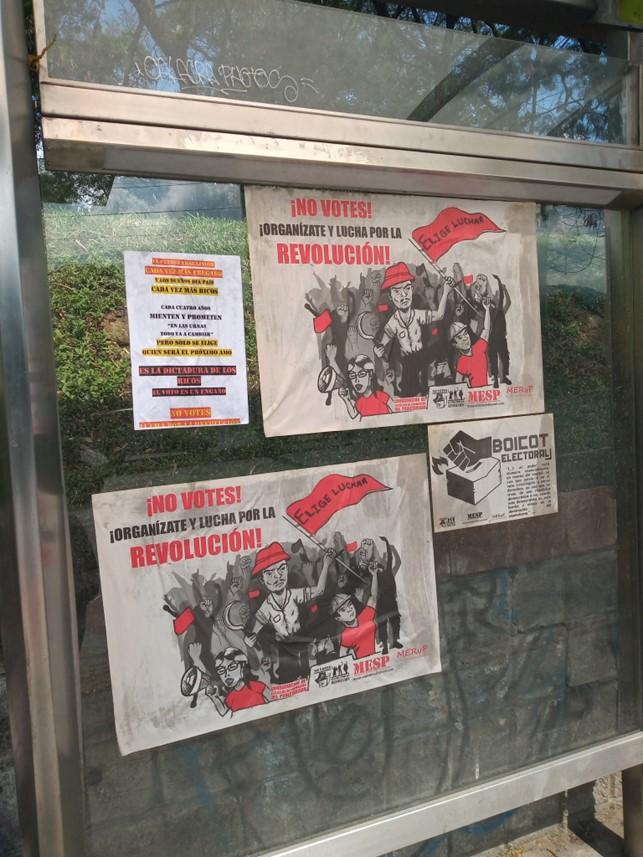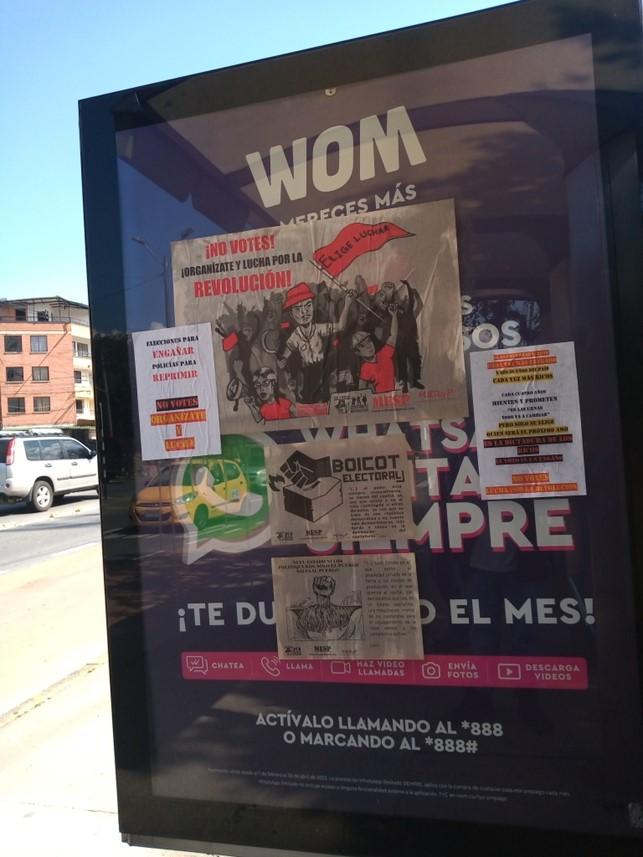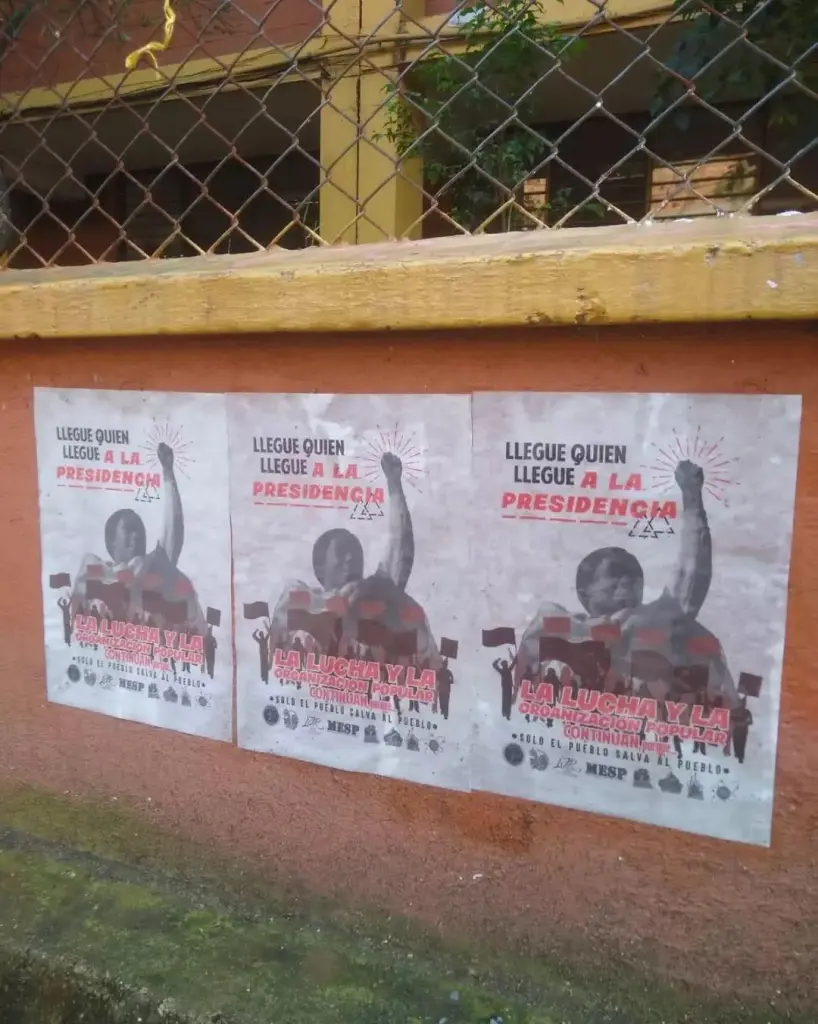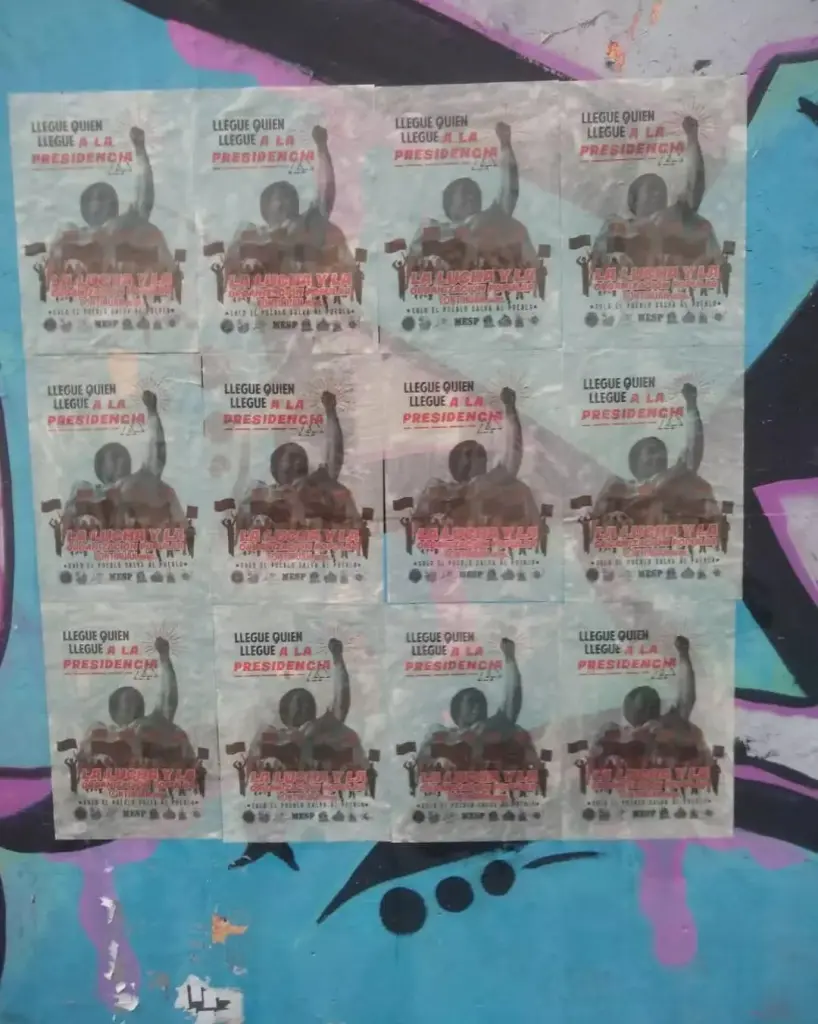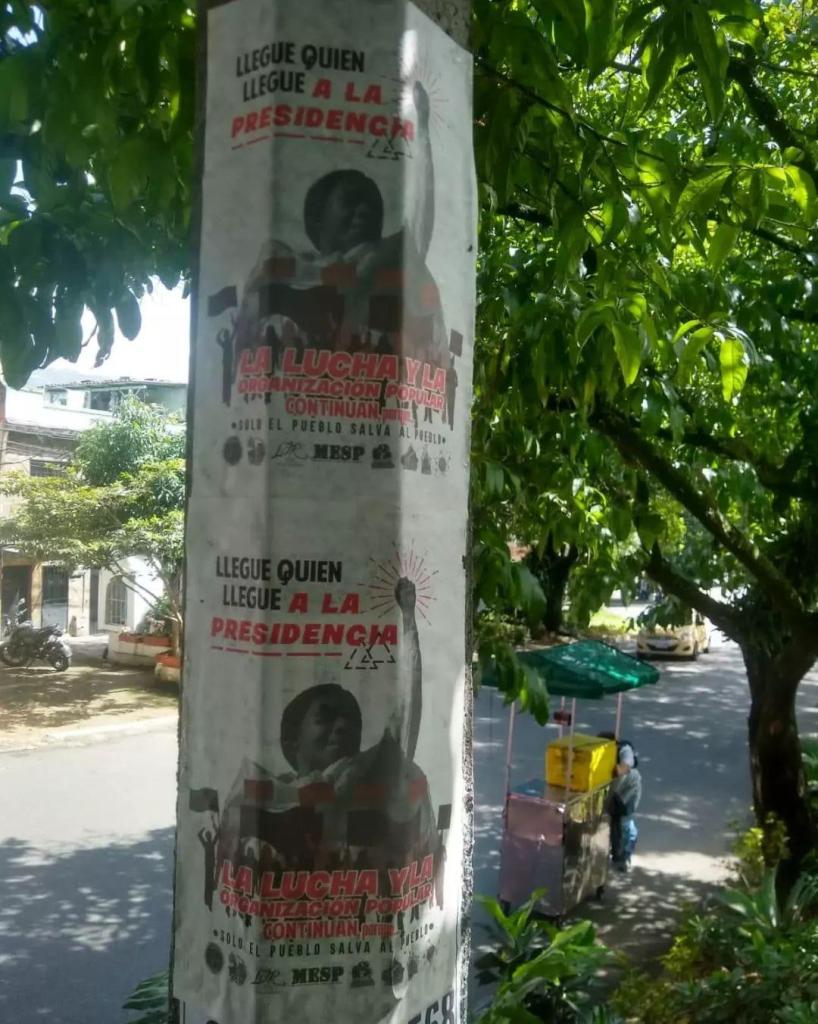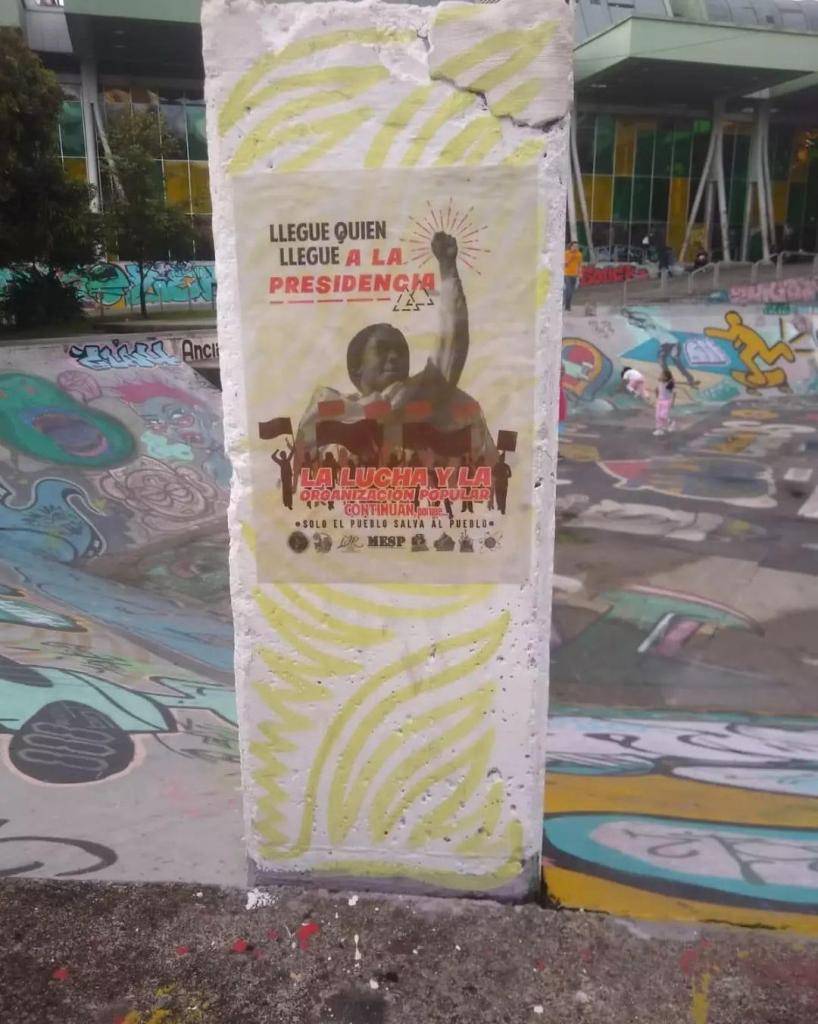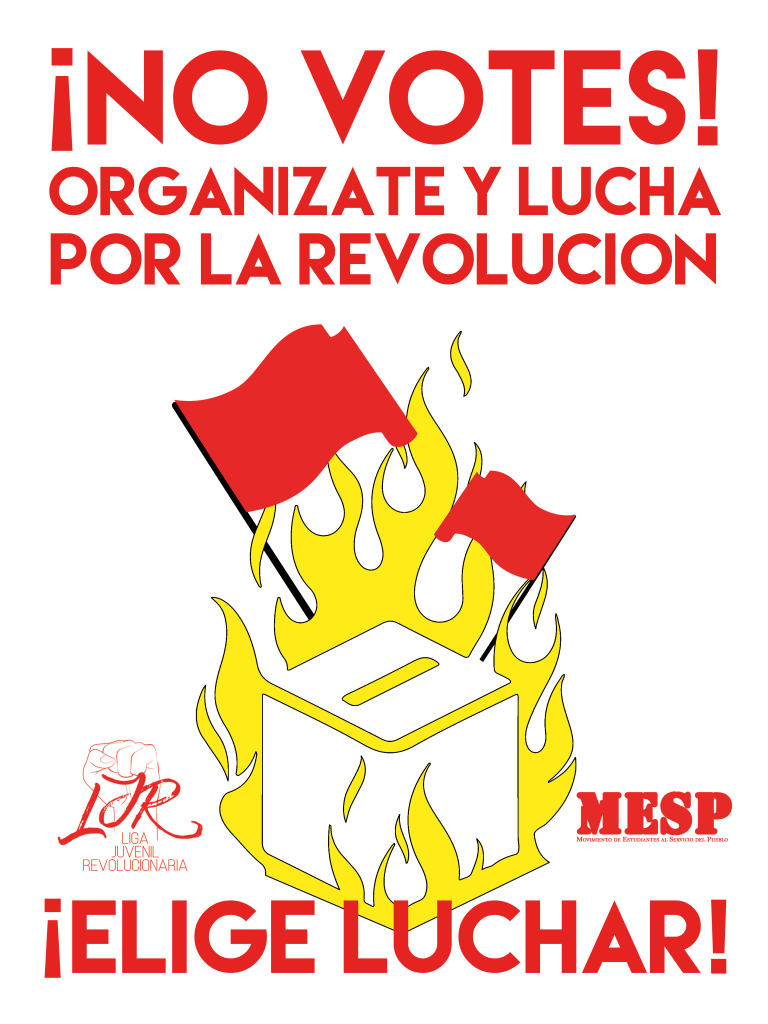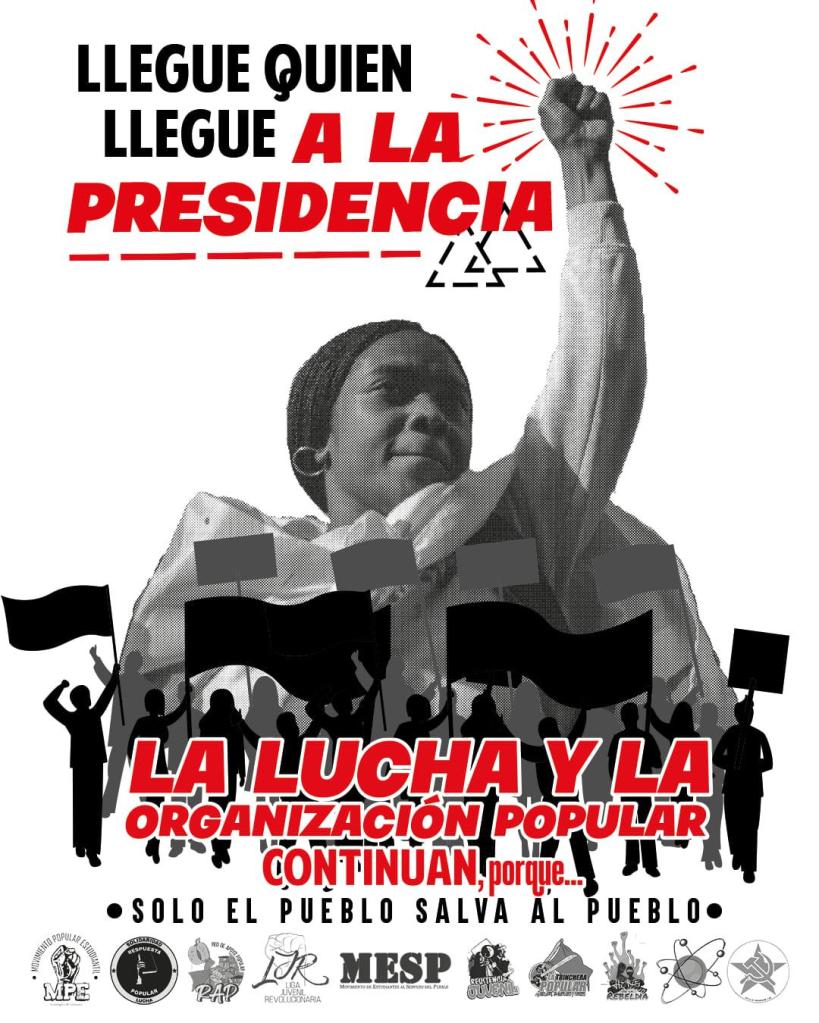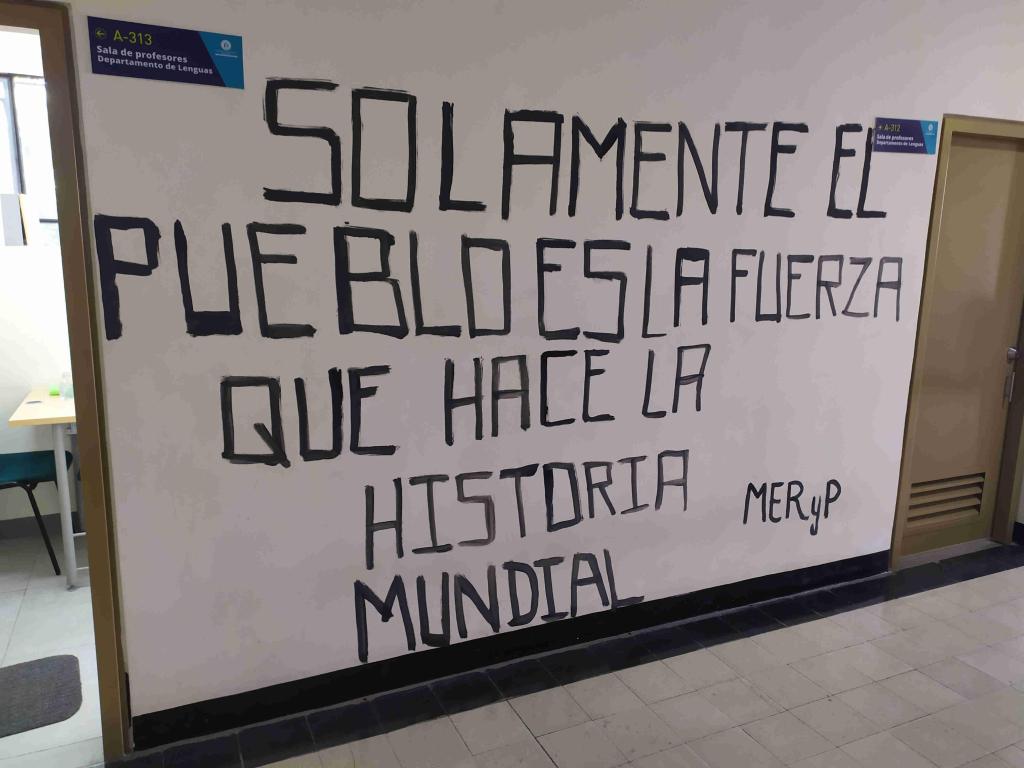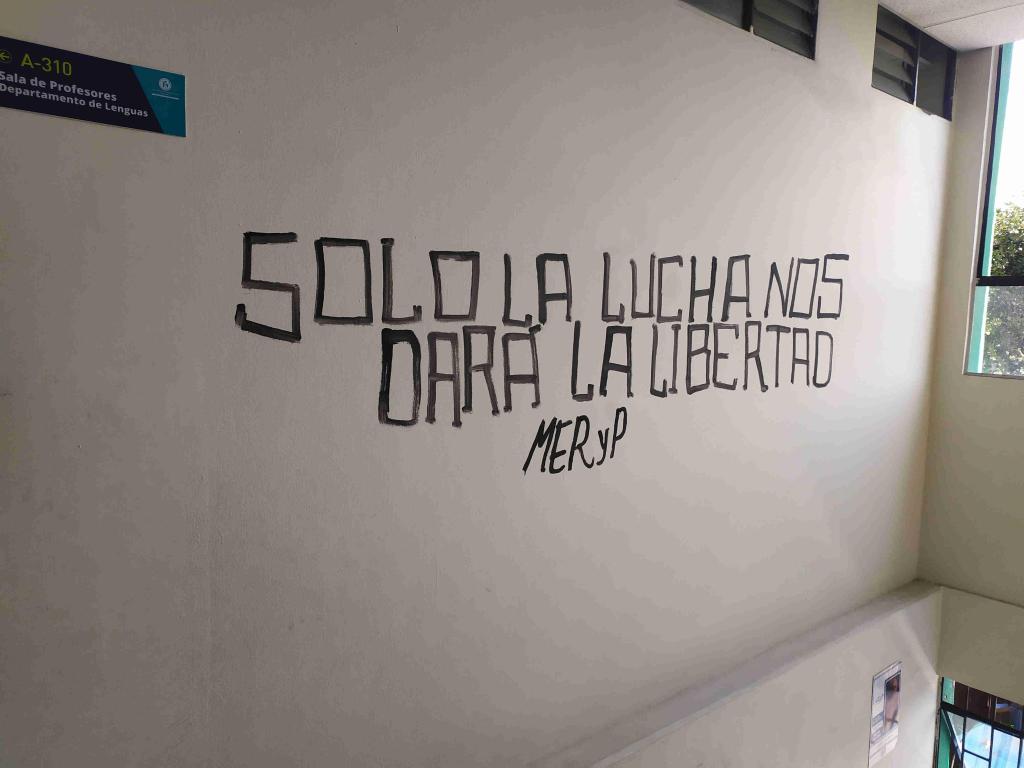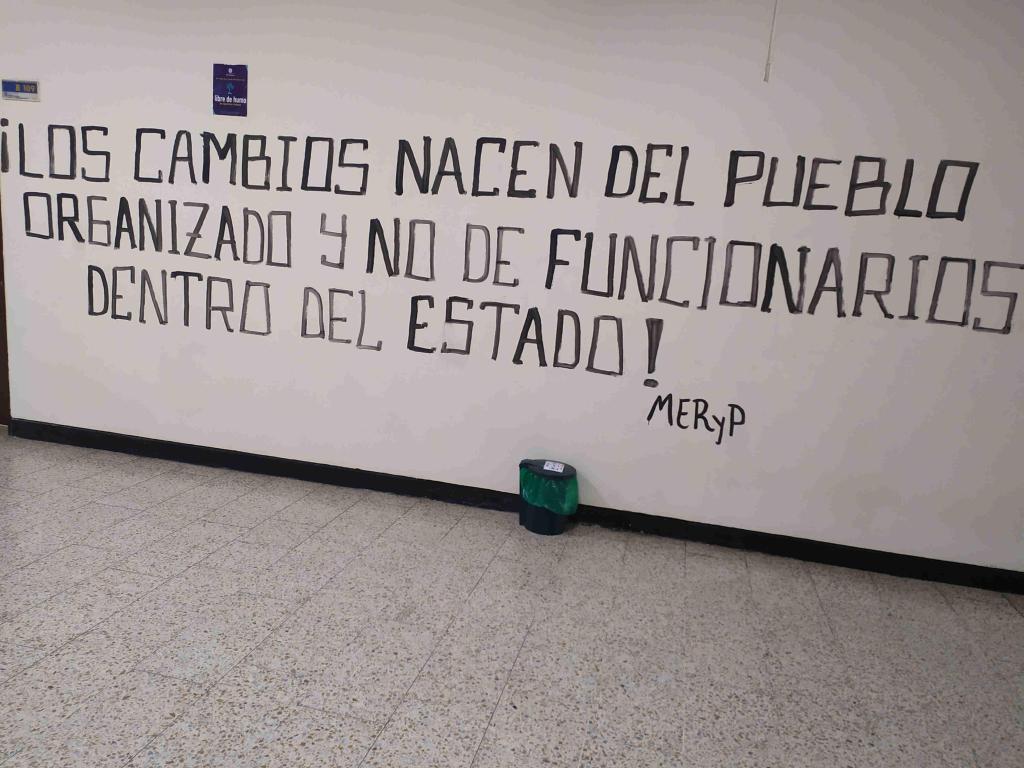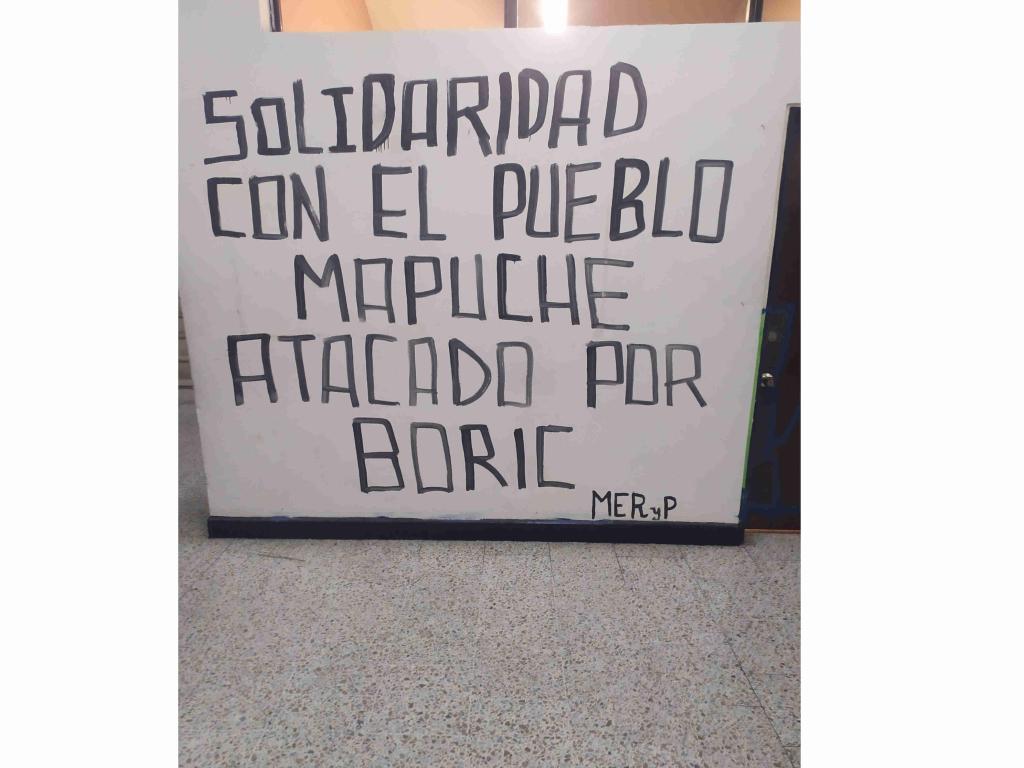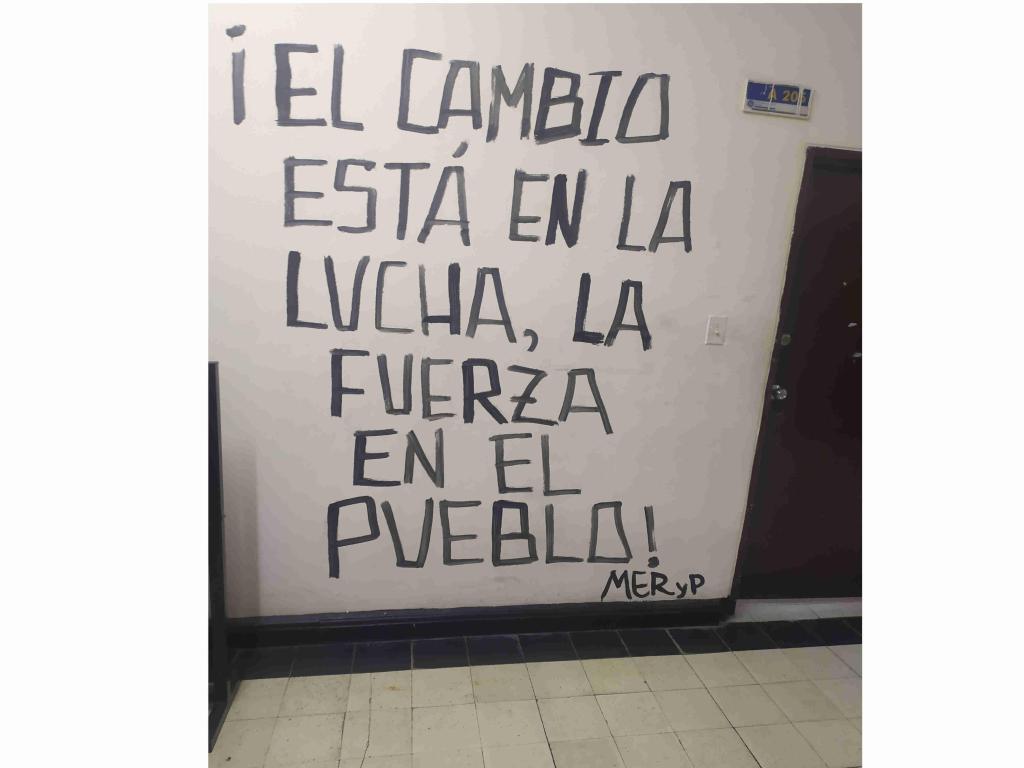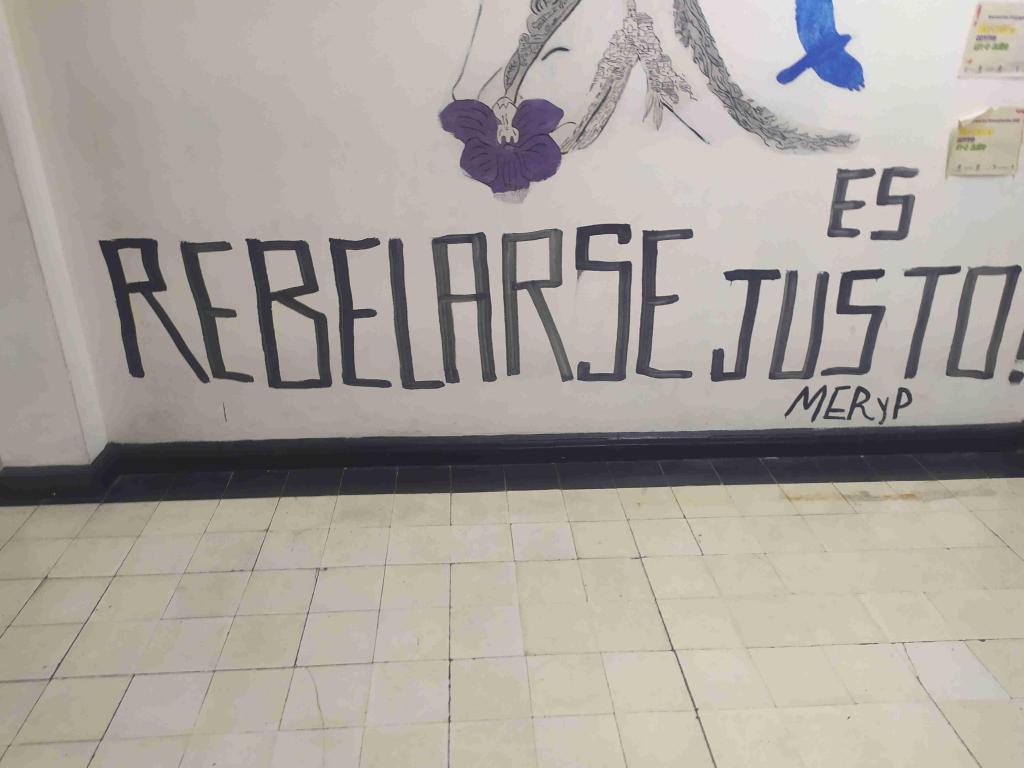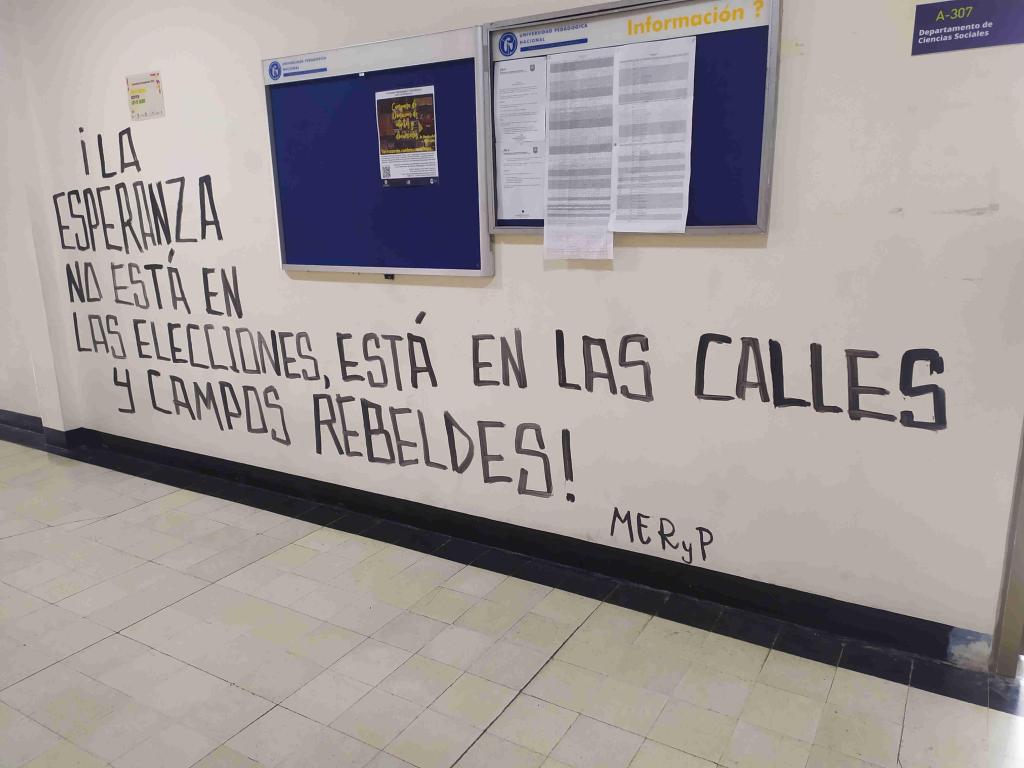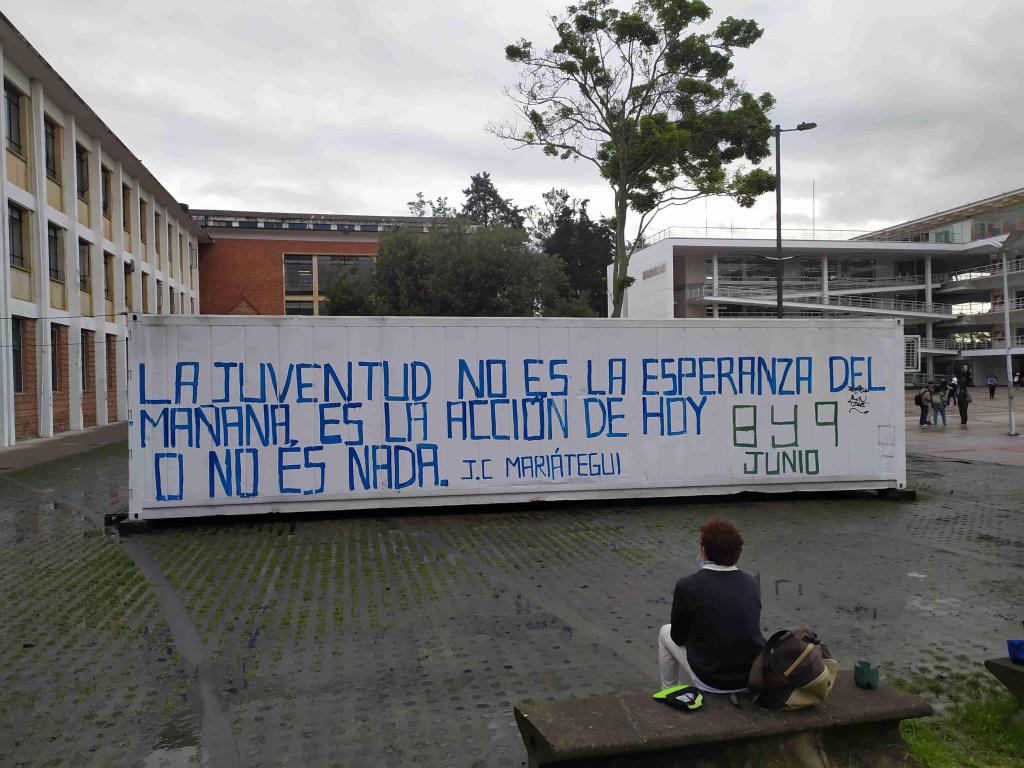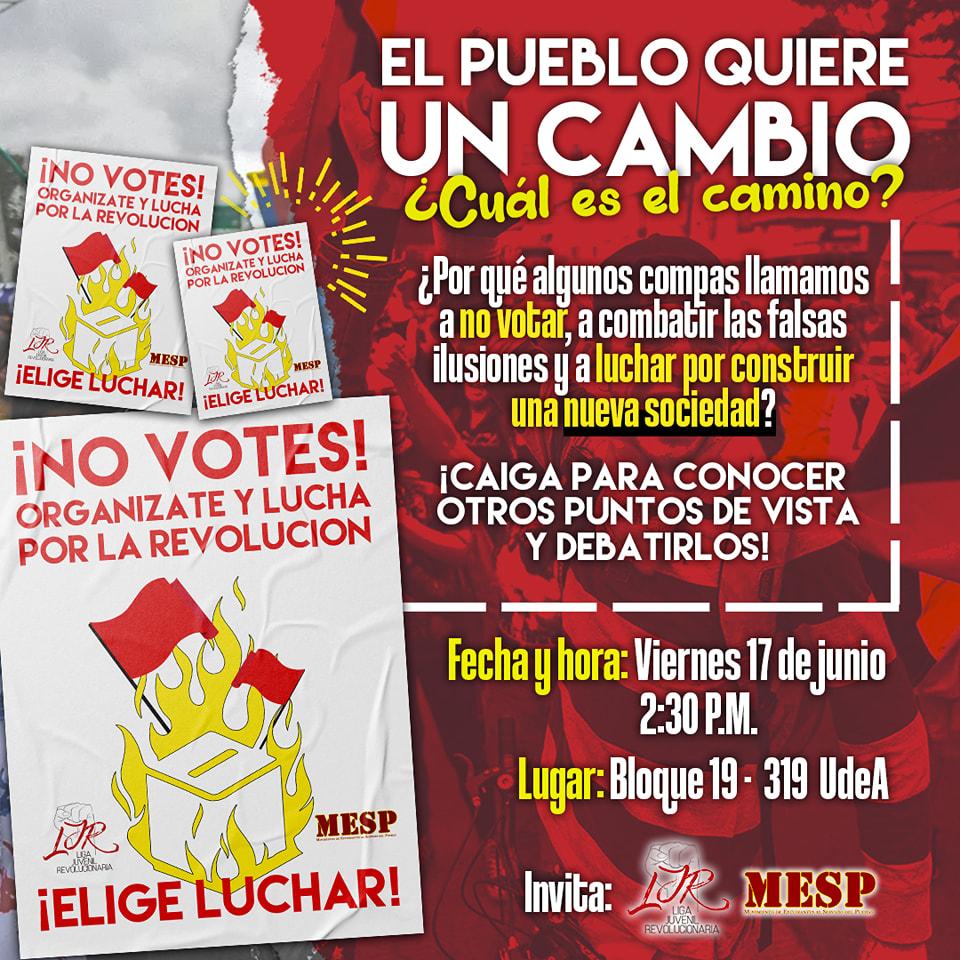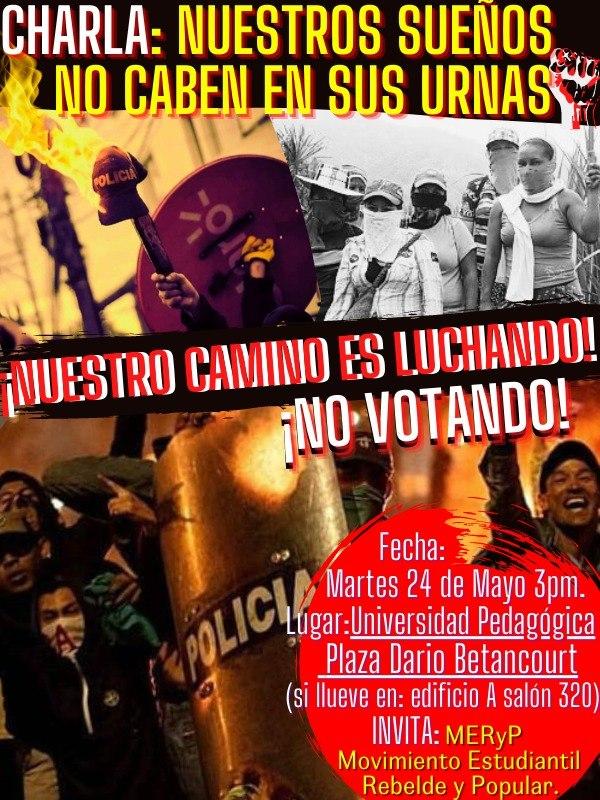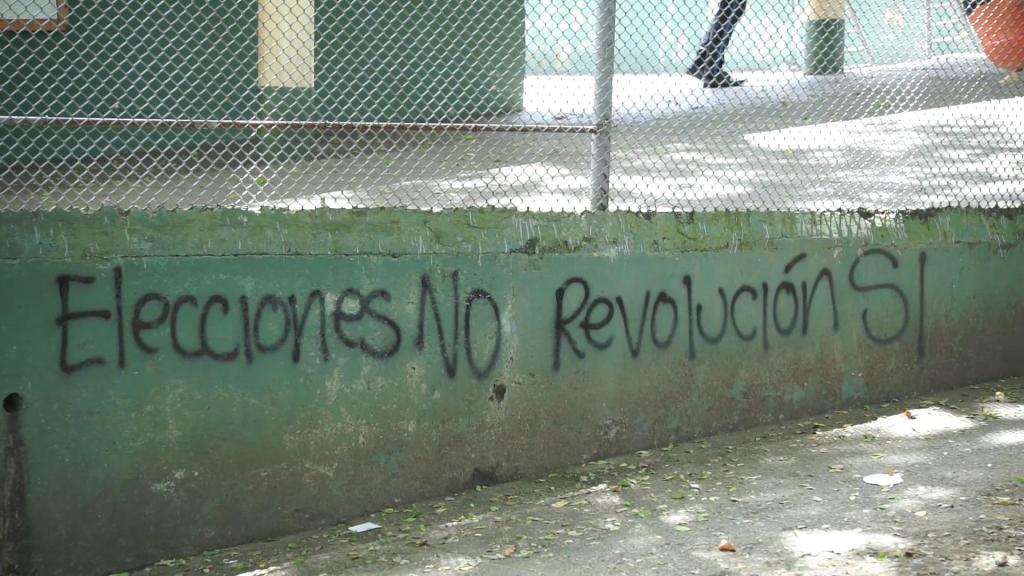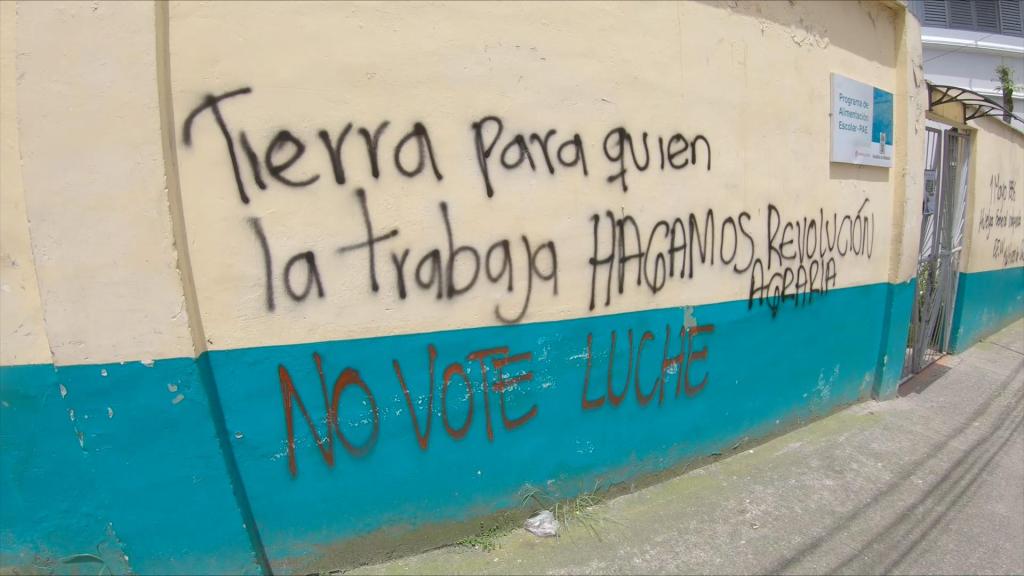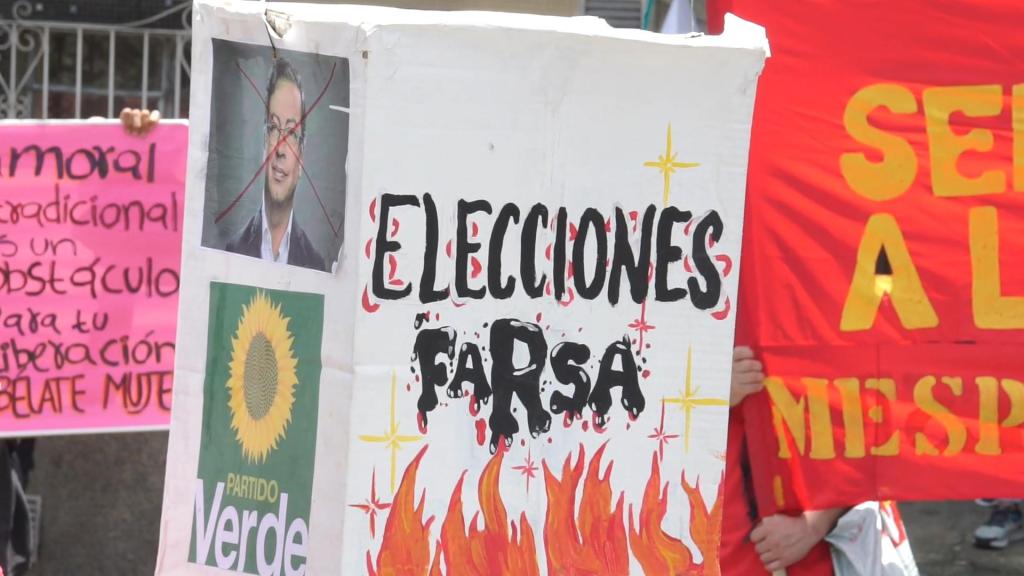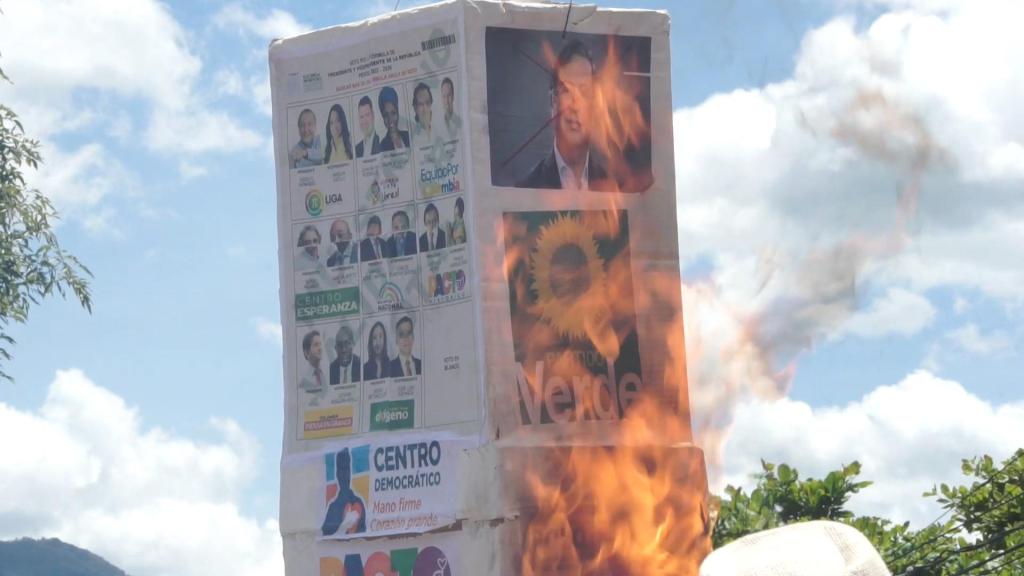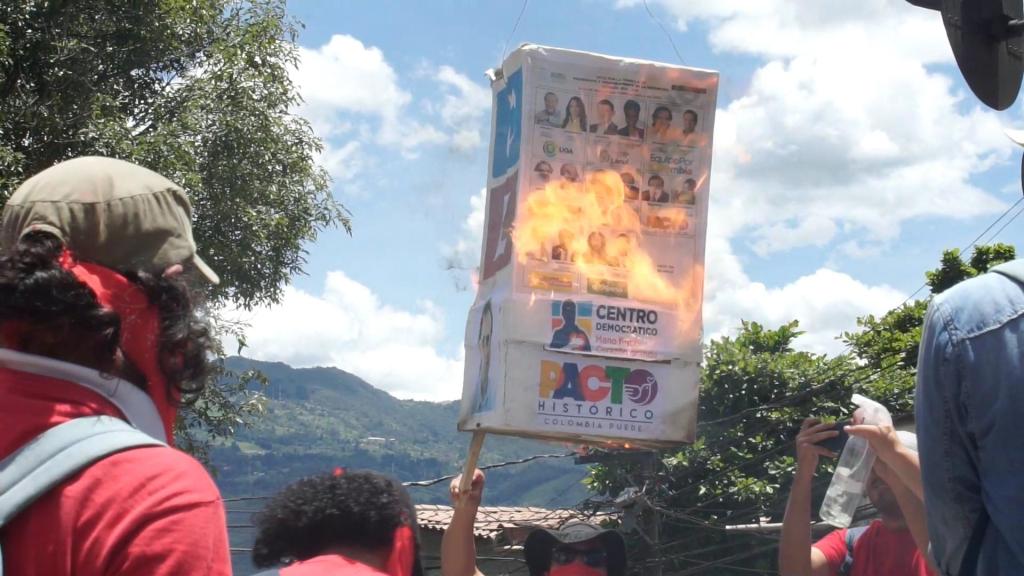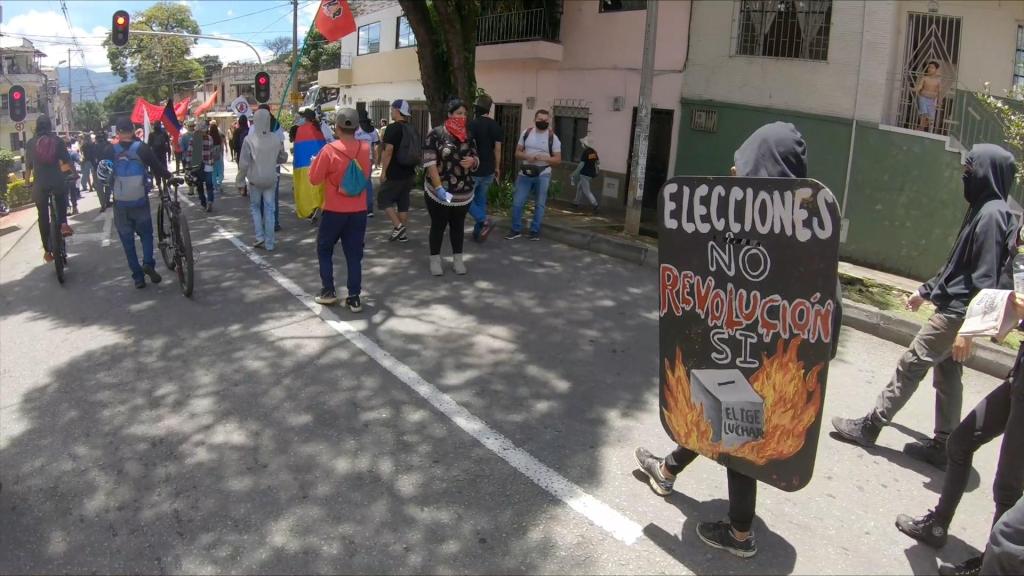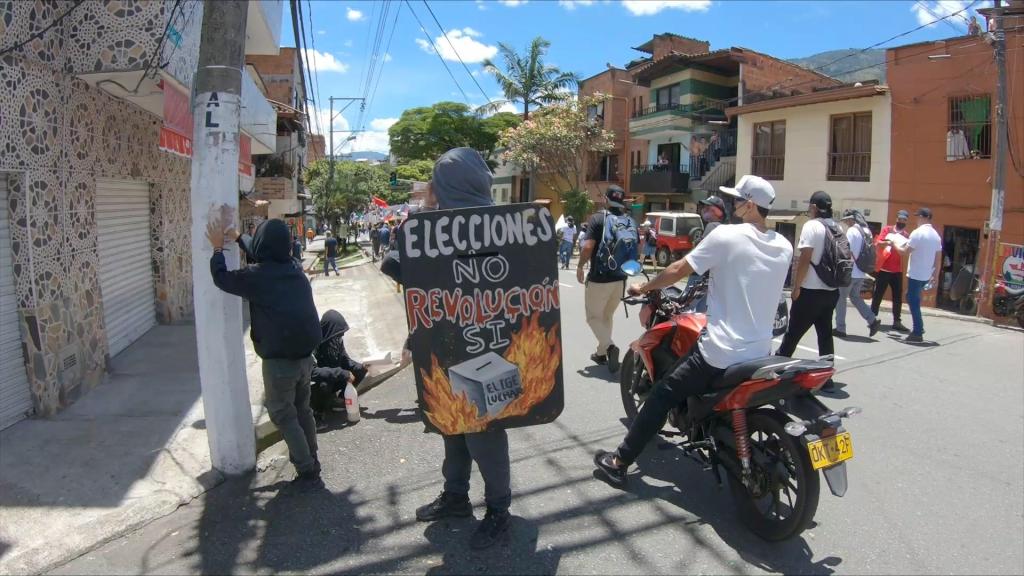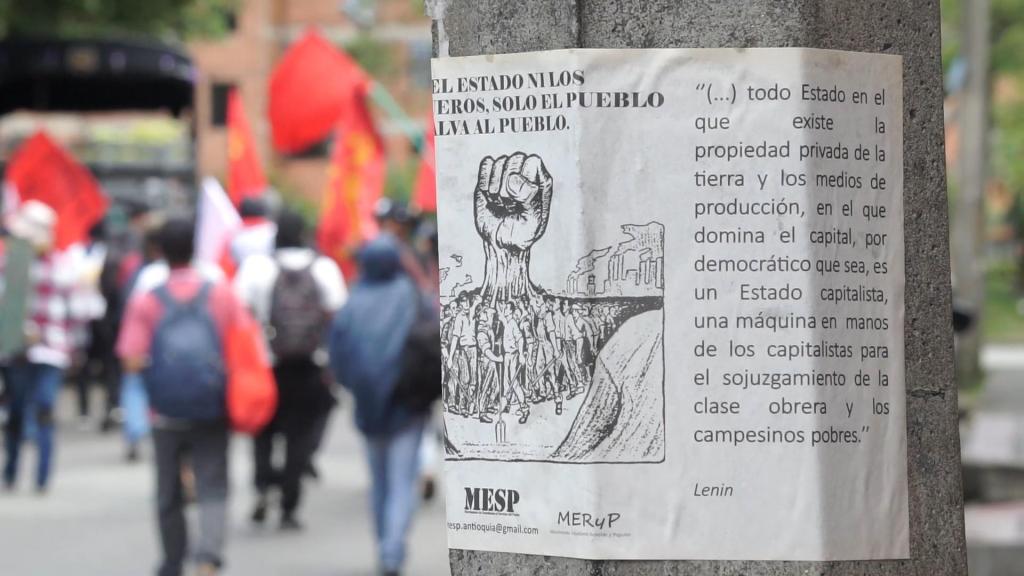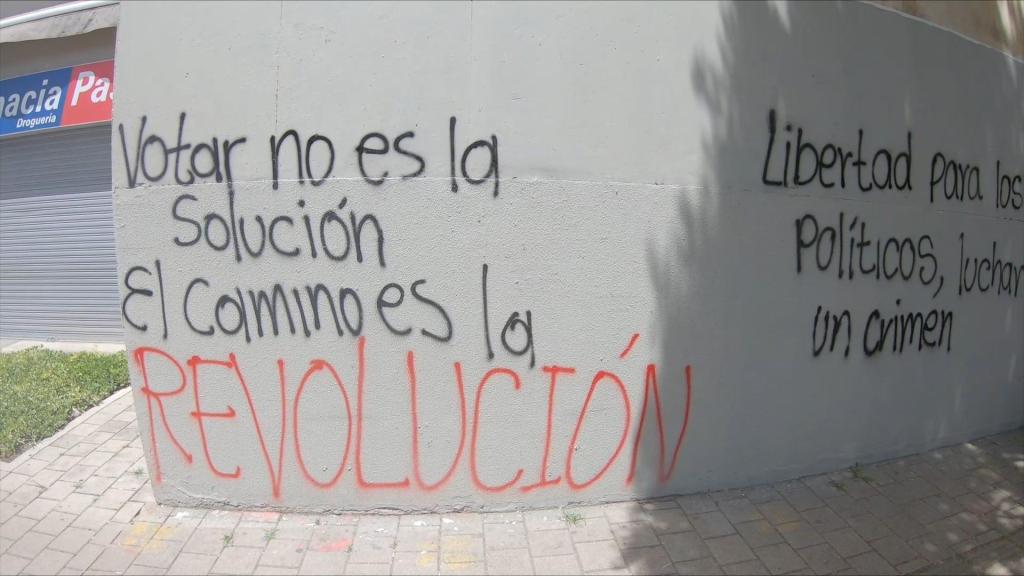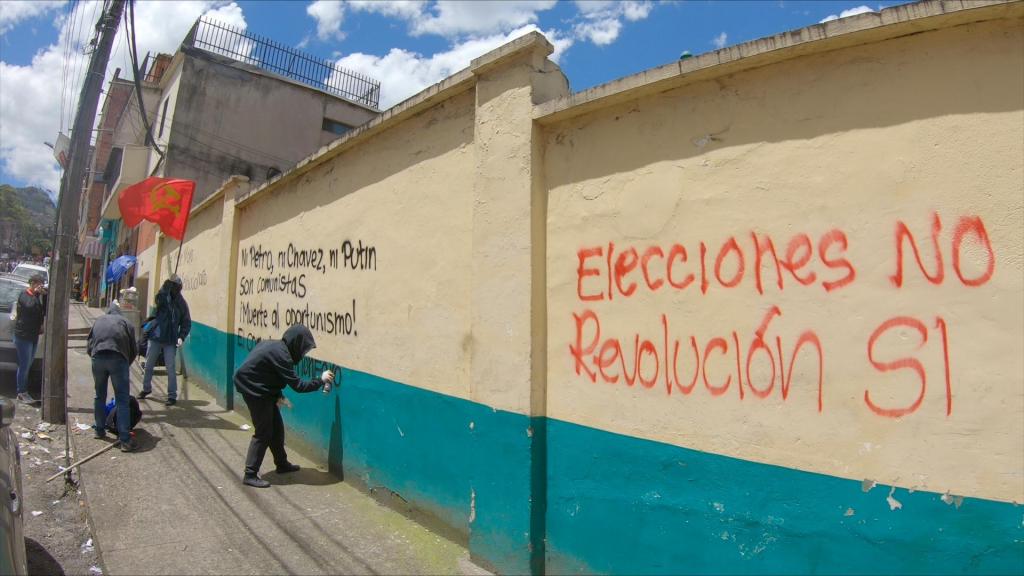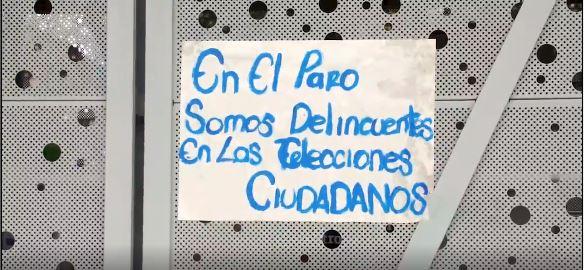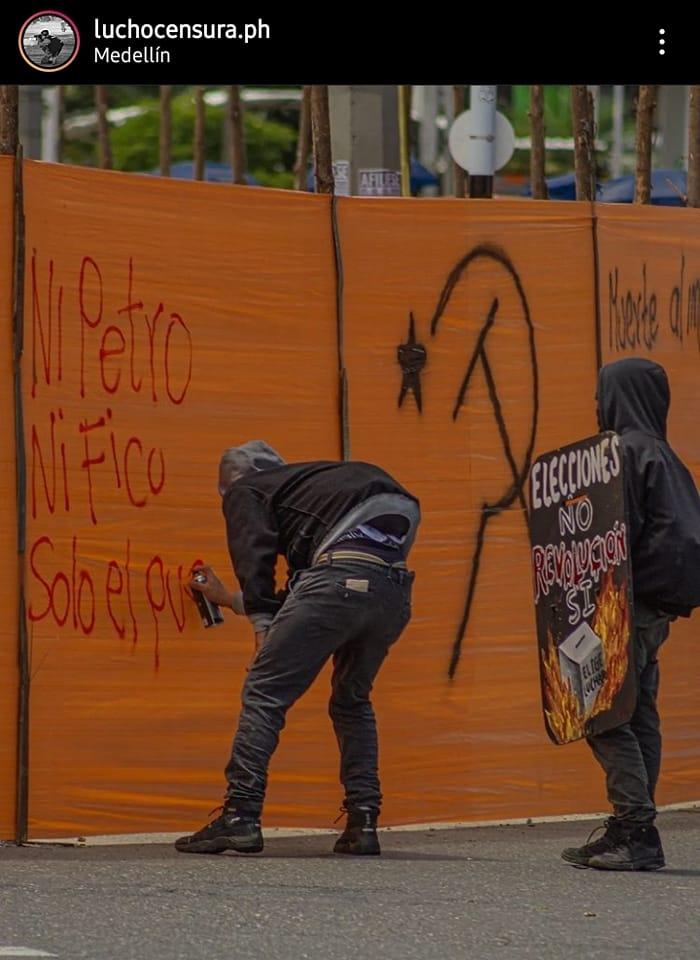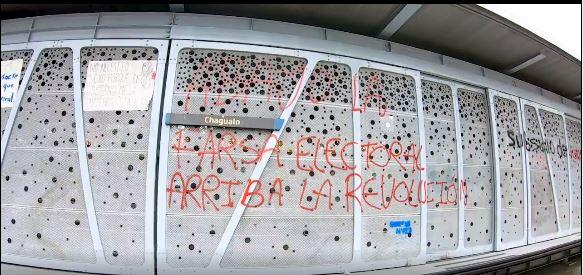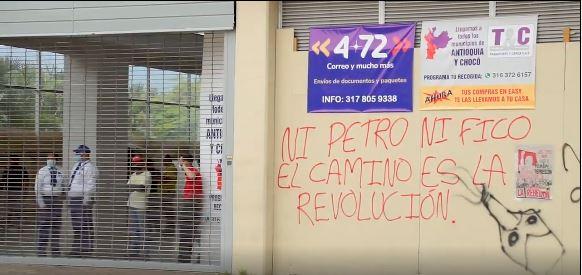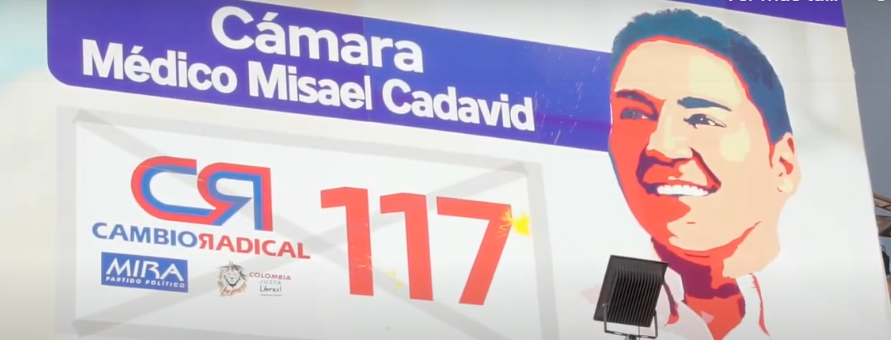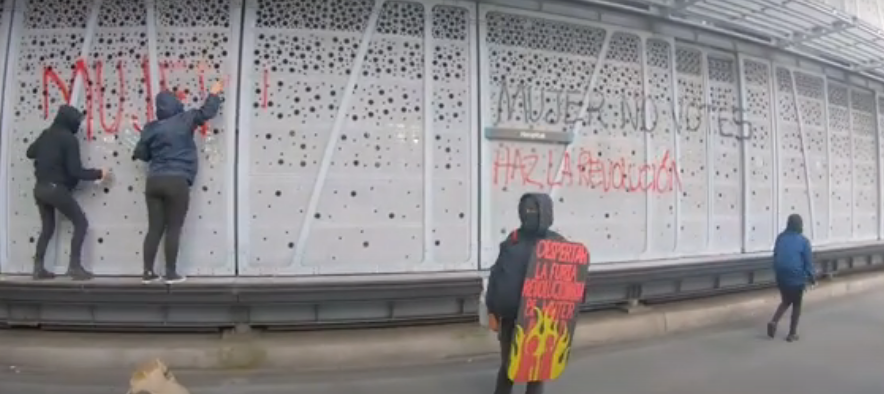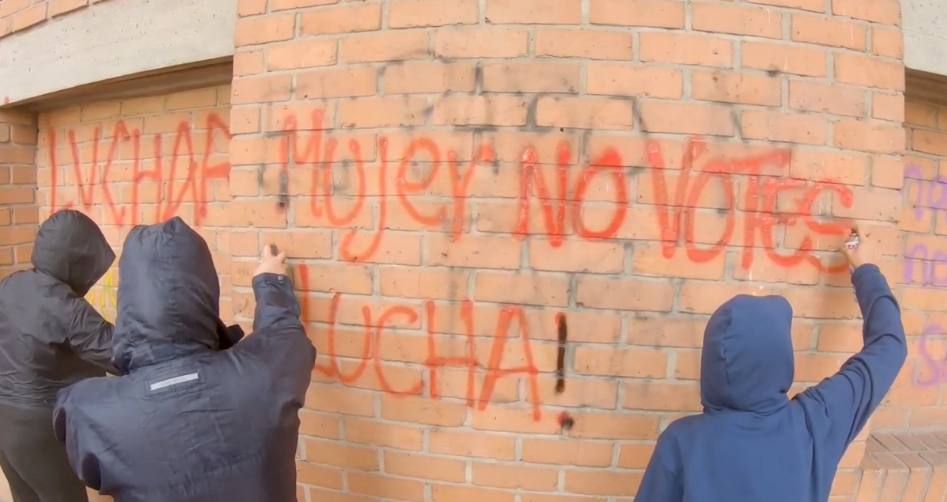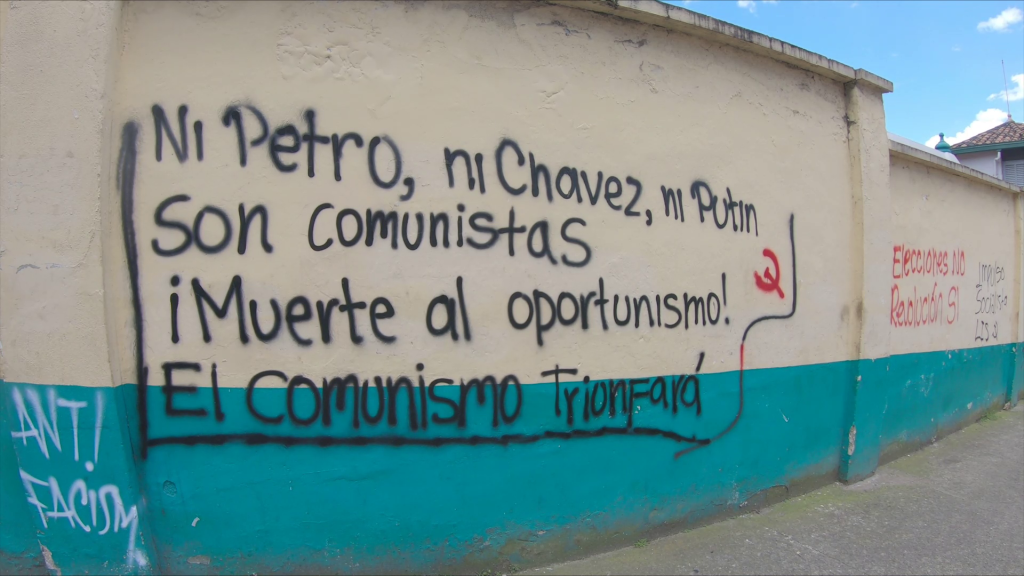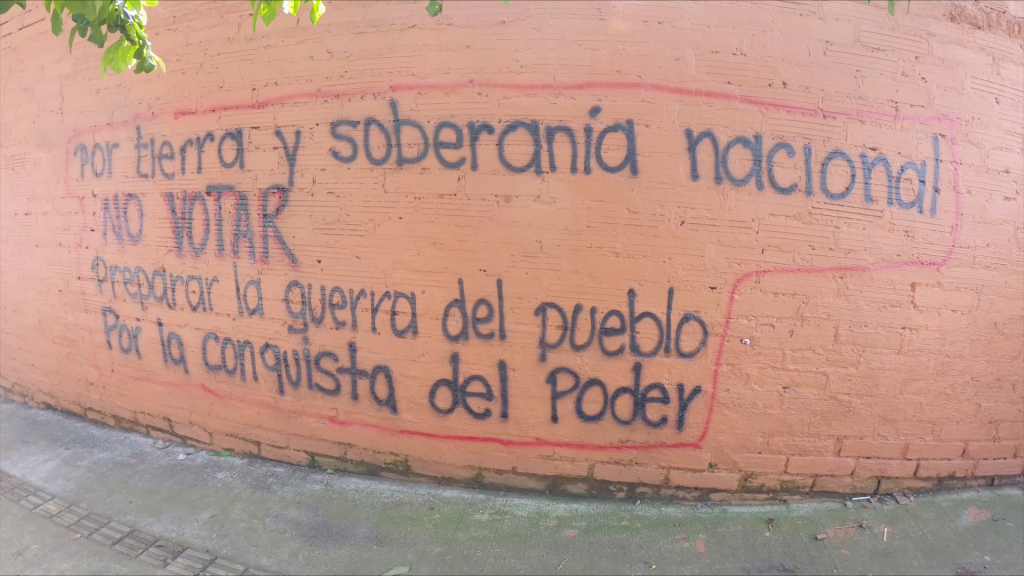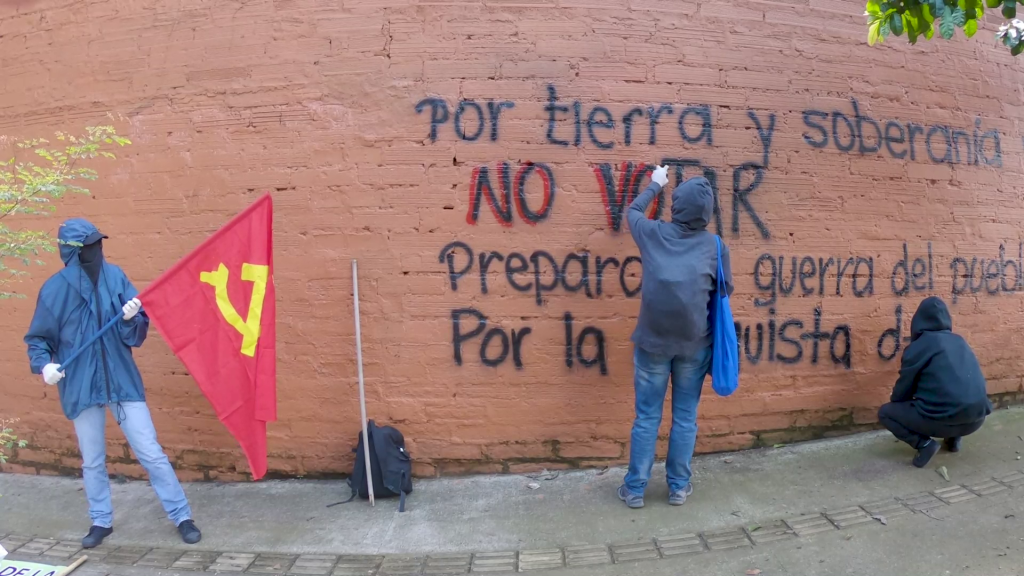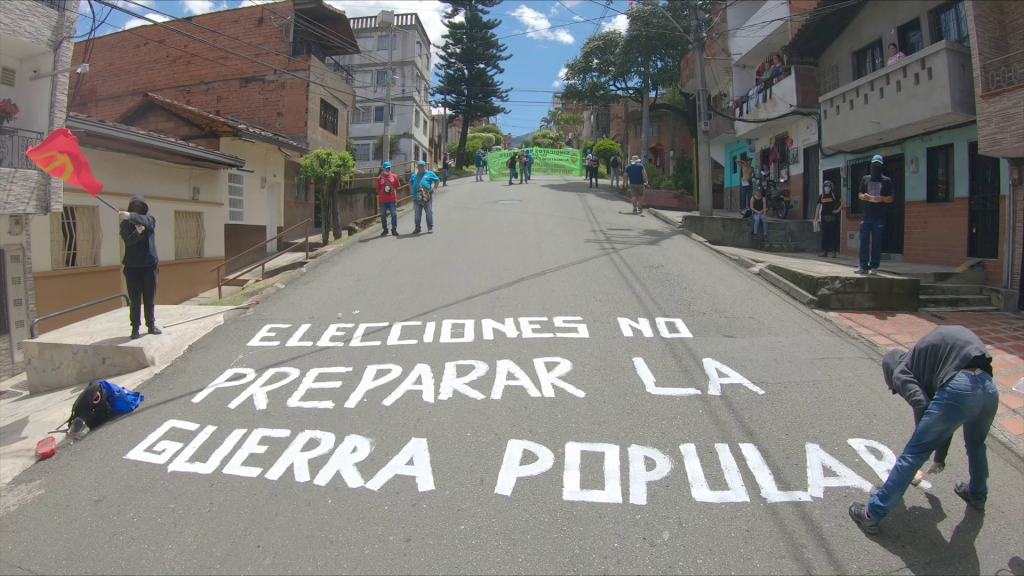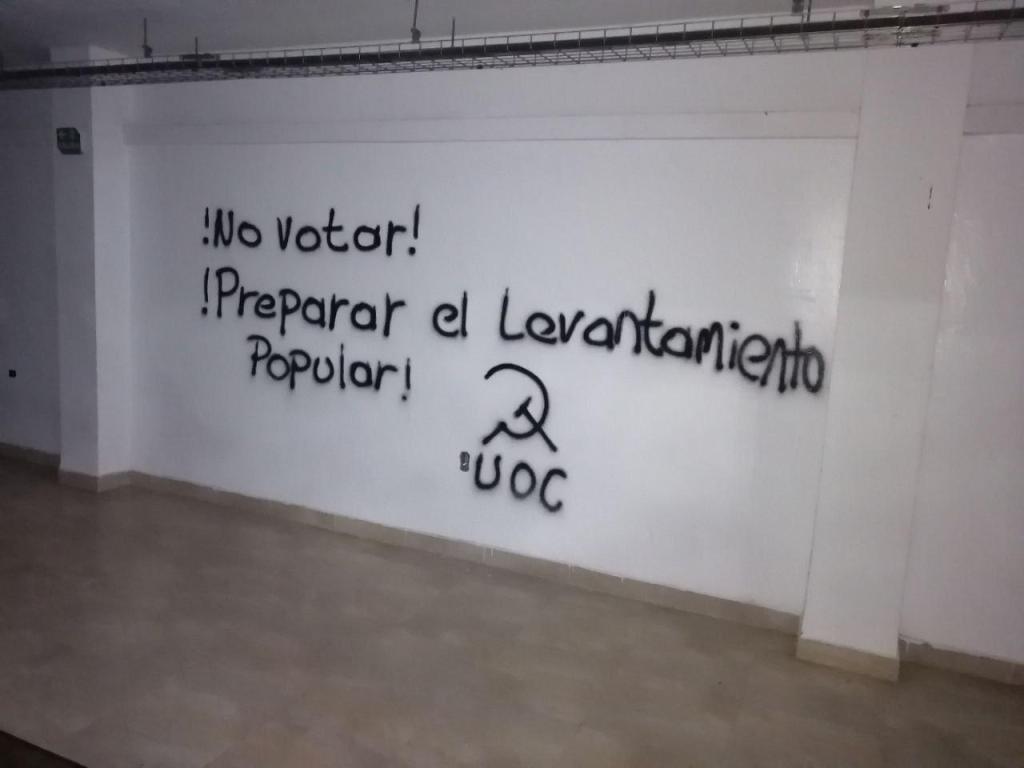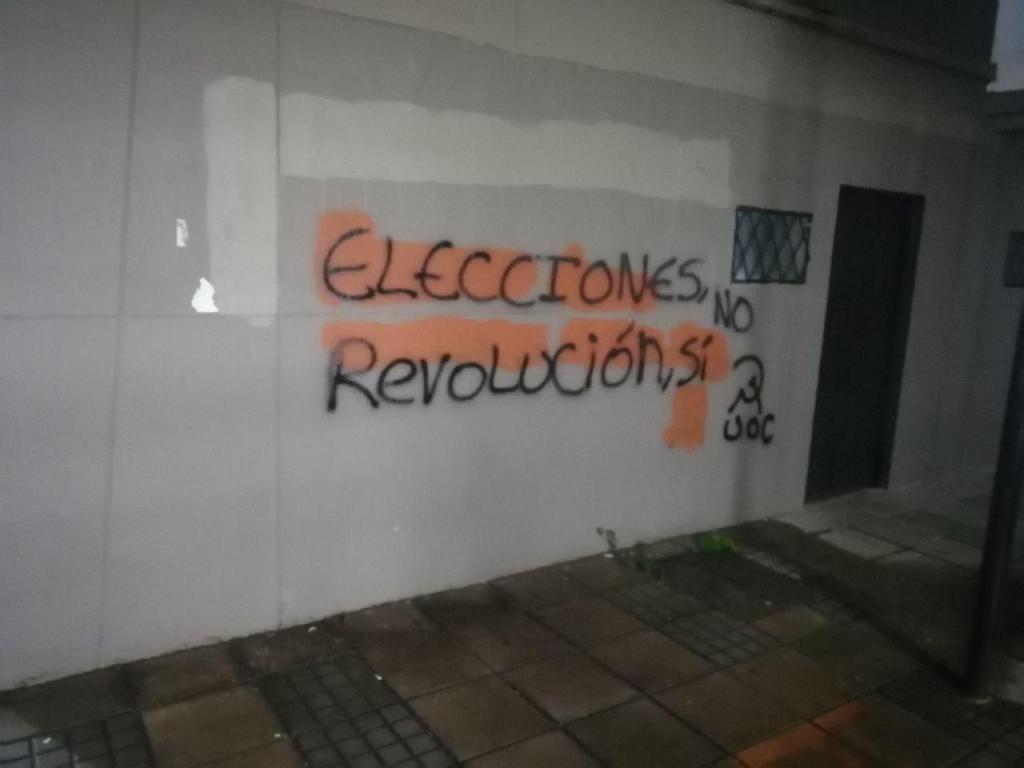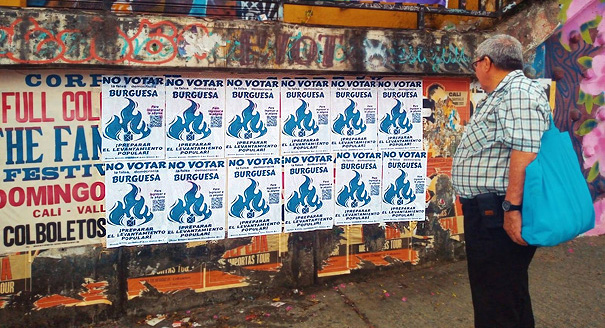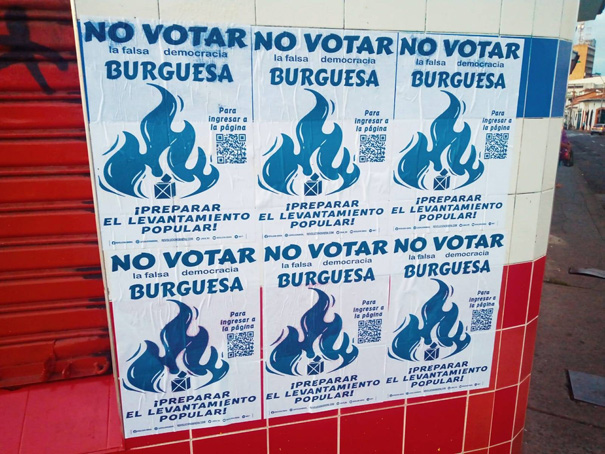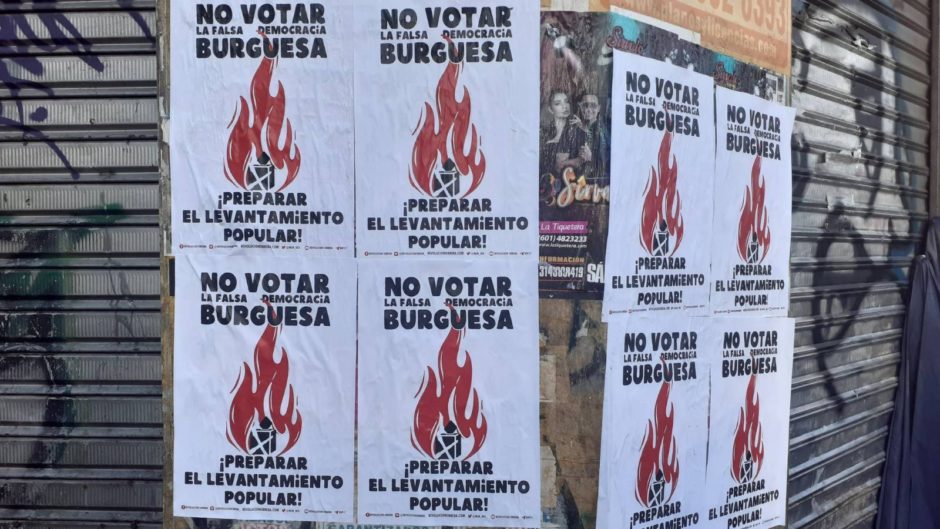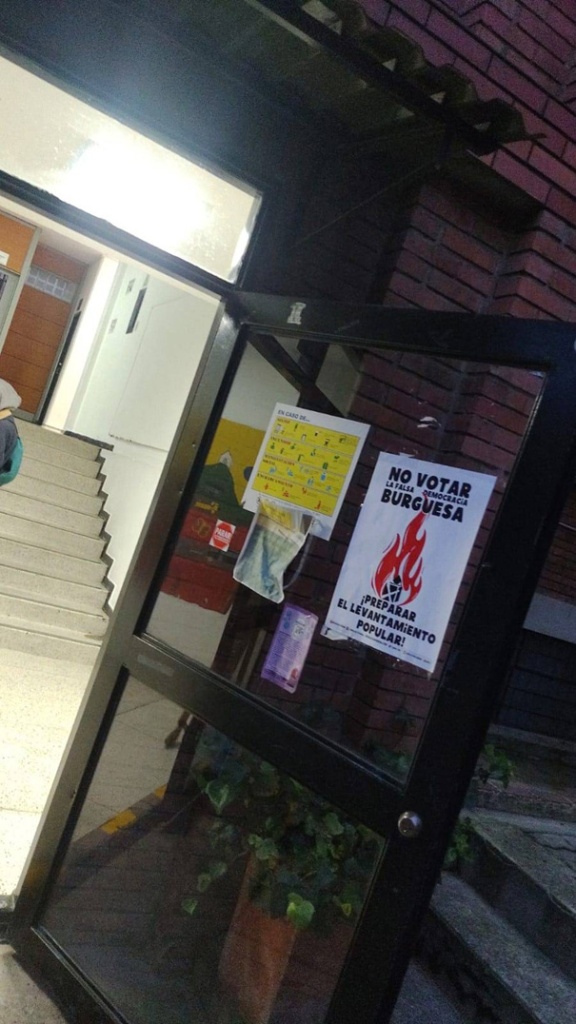El Comunero – On the result of the election and the campaign to boycott it in Colombia
On the result of the election and the campaign to boycott it in Colombia
Another round of the electoral farce in Colombia has come to an end. In the midst of growing popular discontent expressed in large mass uprisings in recent years and a sharp struggle within the ruling classes to define who will be the administrator of the Colombian state (that is, the administrator of the business of the big bourgeoisie and the landowners who are lackeys of imperialism), the winner is the opportunist and representative of the bureaucratic faction of the Colombian big bourgeoisie: Gustavo Petro.
This result has given rise to the most varied opinions on the matter: from those who reject this result, maintaining that Petro is a “leftist” and “communist” who will expropriate and bureaucratise the whole country, leading us to bankruptcy; to those who rabidly celebrate his victory and announce the good news of the long-awaited arrival of a real “popular and democratic government” in these lands, which they describe as conservative and apathetic. The truth is that it is becoming increasingly clear to everyone that neither of them are right. Petro is by no means a radical who will impose a false and distorted “socialism” on the country in the style of Chaves or Castro, nor does he represent the change that the Colombian people have been demanding with increasing force on the streets for some time now.
His call to promote what he calls ” humane capitalism” in Colombia; his ridiculous promises (even before notaries) promising not to expropriate; his ironclad defence of the old big bourgeois and landlord institutions, including institutions as reactionary and central to this old state as the police and the army; his submission to national domination by Yankee imperialism; his call for national reconciliation which is nothing more than the old revisionist chant of conciliation and class collaboration in place of the doctrine of class struggle; his promises of agrarian reform which in essence leaves the concentration of land intact and serves imperialism, bureaucratic capitalism and the landowners; his alliances and close relations with distinguished representatives of the big bourgeoisie and the landowners whom he has sworn in his speeches to fight (such as the Gaviria, Barreras, Benedetti, Hommes, Leyva, Jattin, Suarez Corzo, Calle Demoya, Bedoya, etc.); among many other reasons, they show that this government does not represent the change that the Colombian people yearn for and that it will only be a matter of time before the illusion awakened turns into frustration and the hope for change turns into indignation and rage at the vile deceit, which will inevitably translate into the streets.
Thus, what we have at present is nothing more than a change of tactics of the ruling classes of this country in the face of the evident erosion of Uribism, the uncontainable rebellion of the masses and the times of crisis that the imperialist system is going through. And this new tactic, contrary to what not a few organisations claim (regarding the call to vote for Petro to avoid more bloodshed and the supposedly better conditions to promote revolutionary work), is even more dangerous for the popular movement and more effective for the ruling classes in the application of their three great reactionary tasks: to re-impose bureaucratic capitalism, to restructure the old state and to prevent/crush the development of the revolution in Colombia. Lenin’s words on this subject in his work “Differences in the European Labour Movement” (1910) are very relevant:
“An extremely important cause of differences among those taking part in the labour movement lies in changes in the tactics of the ruling classes in general and of the bourgeoisie in particular. If the tactics of the bourgeoisie were always uniform, or at least of the same kind, the working class would rapidly learn to reply to them by tactics just as uniform or of the same kind. But, as a matter of fact, in every country the bourgeoisie inevitably devises two systems of rule, two methods of fighting for its interests and of maintaining its domination, and these methods at times succeed each other and at times are interwoven in various combinations. The first of these is the method of force, the method which rejects all concessions to the labour movement, the method of supporting all the old and obsolete institutions, the method of irreconcilably rejecting reforms… The second is the method of ‘liberalism’, of steps towards the development of political rights, towards reforms, concessions, and so forth…
When in 1890 the change to ‘concessions’ took place, this change, as is always the case, proved to be even more dangerous to the labour movement, and gave rise to an equally one-sided echo of bourgeois ‘reformism’: opportunism in the labour movement. ‘The positive, real aim of the liberal policy of the bourgeoisie,’ Pannekoek says, ‘is to mislead the workers, to cause a split in their ranks, to convert their policy into an impotent adjunct of an impotent, always impotent and ephemeral, sham reformism.’
Not infrequently, the bourgeoisie for a certain time achieves its object by a ‘liberal’ policy, which, as Pannekoek justly remarks, is a ‘more crafty’ policy. A part of the workers and a part of their representatives at times allow themselves to be deceived by seeming concessions. The revisionists declare that the doctrine of the class struggle is ‘antiquated’, or begin to conduct a policy which is in fact a renunciation of the class struggle. The zigzags of bourgeois tactics intensify revisionism within the labour movement and not infrequently bring the differences within the labour movement to the point of an outright split.”
A faithful demonstration of that confusion and deception of the people and the popular movement pointed out by Lenin has been the reduction in the abstention figures for this second round of elections, standing at 41.83%, when in the country this figure normally exceeds 50% and in the last second round in 2018 it was 46.07%. This reduction is mainly explained by the greater participation of the youth, the most active sector of the masses during the recent days of protests, deceived by the possibility of change and mobilised by taking advantage of their strong rejection of Uribism. However, it is worth noting that despite their decline, it was actually a small part of the population who chose the future president, since of the more than 39 million Colombians eligible to vote, only 11,291,986 voted for Petro, while if we add abstention, blank votes, invalid votes and unmarked ballots we are talking about more than 17 million people who with this act express their rejection, distrust and disinterest in this grotesque spectacle of the electoral farce over any candidate, despite the desperate efforts of the ruling classes to legitimise before the people at any cost their failed and rotten system of exploitation and oppression disguised under a false democratic appearance.
However, it is important to stress that within these vast abstentionist masses there are not only those who do so spontaneously and unconsciously. Youth, student and workers’ sectors, among others, actively promoted boycott actions in some cities of the country against the electoral farce through revolutionary and communist agitation and propaganda activities, aimed at raising the level of consciousness of the masses and moving from a spontaneous boycott to a conscious and determined boycott denouncing the hoax of the electoral farce and announcing the revolutionary road in the country. During these months of intense political propaganda, the team of El Comunero recorded various anti-electoral actions and actions in defence of the independence of the popular movement, such as graffiti, posters, symbolic burning of ballot boxes, sabotage of political propaganda, talks and interventions in large spaces, among others, that show the active presence of revolutionary forces in the country that denounce the electoral farce and call for the construction of a new society.
In the following, we share a compilation of images made by El Comunero of some anti-electoral actions carried out in the country during the last few months, for your dissemination:
–
–
–
–
–
–
–
–
